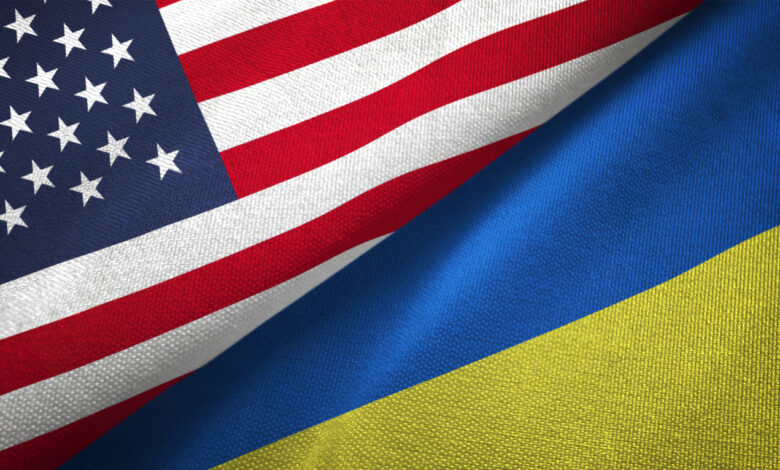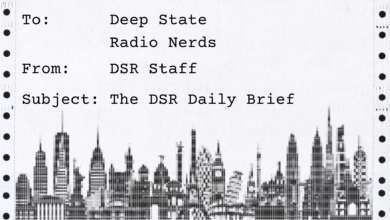America’s Soft Power Moment

As the war in Ukraine continues to drag on, it is unlikely that the West will get involved militarily. Despite repeated calls from Ukrainian President Volodymyr Zelensky for a no-fly zone, NATO leaders have largely ruled it out. However, NATO has turned up the dial on sanctions. So much so that the Kremlin is saying that the West has declared an economic war on Russia. Of course military and economic tools are vital and we should be sending arms and supplies to Ukraine and supporting our NATO allies to maintain our deterrent against Russia. As those options narrow though, America and the West should think creatively about the path forward and lean hard into our soft power advantage.
The idea of soft power came to prominence in 1990 with the publication of Joe Nye’s Bound to Lead: The Changing Nature of American Power. In the book, he talks about soft power as the ability to persuade, rather than coerce, to achieve a government ends. In essence, economics and the military as hard power and diplomacy and culture as soft power.
This war has been incredibly destructive for the soft power of Russia and China. For years, Russia has been on a campaign to make Putin seem like the leader for the international conservative movement. Those days are gone. Turkey and Hungary, who have been at least Putin-curious, if not pro-Putin, in recent years have stepped up and stayed close with the West during this conflict. Turkey has closed off the Bosphorus and Dardanelles straits to warships and has been attempting to serve as an honest broker between Russia and Ukraine, hosting their foreign ministers last week. Hungary has accepted hundreds of thousands of refugees and has supported sanctioning Russia. In addition, RT and Sputnik, two state run propaganda outlets, have been banned in Europe and their reach has been severely limited online. The overwhelming vote against Russia at the United Nations shows just how far their soft power star has fallen.
China’s soft power loss is harder to see. However, that is part of the problem for China. Xi Jinping wants to be seen as a world leader but the largest land war is happening in Europe. How China reacts is an afterthought. The problem for China is that Russia is a partner and a bordering state that they want a good relationship with. At the same time, they have consistently tried to position themselves as the leader of post-colonial states that stand up for sovereignty in the face of foreign pressure. While their official position is quietly pro-Putin, online government accounts are spreading Russian generated conspiracy theories which may end up putting them on the wrong side of Silicon Valley executives and European regulators if it continues. These concerns seem to be getting to Beijing because CIA Director Bill Burns told the House Intelligence Committee about the “reputational damage that can come by their close association with President Putin.” The Belt and Road Initiative that has connected more than 130 countries to China may be seen as less appealing if it is seen as a vector for tanks rather than trade.
The United States on the other hand has been seen as a global leader. The trans-Atlantic alliance has held up well through intense diplomacy and sanctions of Russia have rolled out across almost the whole alliance at the same time, with the exception of sanctions on Russian oil and gas. In addition, the alliance has even gained unexpected support from traditionally neutral Switzerland who imposed sanctions on Russia and pacifist Japan who changed its rules about exporting defensive equipment to countries in conflict to support Ukraine. In the days and weeks to come, intense diplomacy will be necessary to maintain sanctions, but President Biden has restored the tarnished reputation of the United States following the disastrous Presidency of Donald Trump. However, there are other creative ways that we can turn the screws with America’s soft power that are not just about a diplomatic surge in Europe.
First, America should expand the diplomatic and foreign aid surge to other regions of the world. The President has already sent former senior defense officials to Taiwan to reassure them but there are many countries that are going to be negatively impacted by the war. Russia and Ukraine make up about a quarter of the global supply of wheat and export to countries from Morocco to the Philippines. Between the destruction of Ukraine and Russia’s announcement banning wheat exports, prices have skyrocketed. Oil prices have also jumped. To make matters worse, these price hikes come as supply chain disruptions and COVID-19 have pushed inflation up worldwide. Prior to the invasion, Carmen Reinhart and Clemens Graf von Lukner wrote in a blog for the World Bank that “78 out of 109 EMDEs [Emerging Markets and Developing Economies] [are] also confronting annual inflation rates above 5%”. America should seek to be a force for good in the world by making sure that the sanctions imposed on Russia and the war itself do not destroy the lives and livelihoods of people in the developing world. Coupling increased aid with a diplomatic push could also make in-roads in countries where it has been difficult in the past.
Second, America should greatly increase funding for the U.S. Agency for Global Media (USAGM) and consider new ways of supporting its mission. The U.S. Agency for Global Media’s mission is to “inform, engage, and connect people around the world in support of freedom and democracy”. It’s history dates back more than 75 years to the first broadcast of the Voice of America into Germany during the Second World War. In a world where Russia has almost completely destroyed a free press in Russia and China’s Great Firewall prevents access to the open internet, their mission is more important than ever. However, the information environment has changed significantly from the days of shooting radio waves into enemy territory. USAGM has recognized this and has an Open Technology Fund with a budget of $20 million dollars focused on jumpstarting internet freedom technologies. There is much more work to be done on this front as it is a constant cat and mouse game with censorious states. However, Elon Musk’s donation of Starlink Internet, a technology allowing users to get internet for satellites rather than land based antennas, to Ukraine is just one example of unique technologies expanding internet and information access that the United States should be funding and deploying.
However, it is not just that the technology has changed, the way people consume and share information has changed. Instead of turning on the radio or TV, people are turning to podcasts, YouTube, and social media. For all its faults, and there are many, social media and modern publishing tools can help expose corruption, organize protests, and increase access to diverse viewpoints. The power of social media is on full display in this conflict and a number of outlets have described the War in Ukraine as the first TikTok war and “the most online war of all time until the next one”. The government needs to invest to make sure that outlets run by the USAGM are leading sources of news on all major platforms. There are also other ways that the U.S. should seek to work within the new rules of media. Facebook has been the source of COVID disinformation and it helped stoke a genocide in Mayanmar. However, their work around voter registration and vaccination has also been helpful. The U.S. and partner countries should work to make sure that in cases like the war in Ukraine that these sites actively set up knowledge centers and pinned announcements at the top of the app that share information and high quality news so that users in affected countries get the information and resources they need. The Biden administration is already moving in the right direction on this. On Thursday they met with TikTok content creators to discuss the war with them. After the call, the Washington Post reported that “several influencers said they felt more empowered to debunk misinformation and communicate effectively about the crisis.” This is exactly the kind of low-cost and high impact move that will greatly improve the information environment on social media.
The debate may be narrowing in the media as to whether or not the U.S. should impose a no-fly zone in Ukraine and what should be sanctioned next but those are far from the only options available to the United States. Expanding the diplomatic and aid surge to other impacted countries could do real good for lower and middle income countries hurt by rising fuel and food costs. It could also win the U.S. some friends. Properly funding and working with the USAGM as well as working with the creators and stars of social media can chip away at authoritarians like Putin seeking to control the narrative in their countries and support organizing around the values of human rights and democracy. While America continues to ramp up its economic and military pressure on Russia, it would do well to remember the other tools in the foreign policy toolbox.

